Herbal Tisanes Are a Fantastic Way to Relax and Unwind
It’s that magical time of the year again – the holiday season, and we can feel the excitement in the air! However, let’s remember that this time of year can be challenging for some of us. If you’re feeling a bit stressed or anxious, there are plenty of simple things you can do to make yourself feel better.
How about treating yourself to some delicious herbal teas (tisanes)?* They’re a fantastic way to relax and unwind.
For centuries, people have enjoyed herbal teas for their ability to improve overall health and well-being. As we look to the future, it’s clear that herbal teas will continue to play an essential role in our lives. They can help us reduce stress and anxiety, promote better sleep, and support our body’s natural defenses against disease. Who doesn’t want to be healthier, feel more relaxed, and get a good night’s sleep, right?
Drinking herbal teas will be an excellent way to care for ourselves as we move forward.
These teas’ delightful flavors and aromas can be fully appreciated while reaping their full benefits. Research has shown that herbal teas contain various natural anti-inflammatory compounds that may benefit the body, such as antioxidants, antiviral, and antibacterial compounds. They can reduce inflammation and lower the risk of blood clots and high blood pressure.
Looking ahead, we can expect more studies to reveal the full scope of the benefits of herbal teas. A recent study found that lemon balm, often consumed in tea blends, may effectively improve feelings of stress, anxiety, and depression https://www.mountsinai.org/health-library/herb/lemon-balm. However, more research is needed to understand its benefits fully.
It’s a good idea to start incorporating herbal teas into our daily routine to prepare for the future.
Here is a list of ten herbal teas that provide a range of health benefits. Many of the herbs mentioned here can be found in blended tea varieties, allowing you to enjoy several herbs’ advantages for stress management. So, let’s embrace the future and enjoy the benefits of herbal teas, enjoy the holiday season to the fullest, and don’t forget to take care of yourself along the way!
1. Lemon balm alone or in tea blends is an excellent tea with calming and mood-boosting properties, promotes sleep, and supports cognitive function.
2. Chamomile tea is a popular choice for helping reduce anxiety, promoting sleep, and supporting digestive health, whether alone or combined with other ingredients.
3. Lavender blend teas are an excellent choice for mental health benefits and stress relief and can help ease tension, calm nerves, and improve sleep. It is another option for mood improvement and has long been used in aromatherapy to promote relaxation.
4. Valerian root tea is used to help improve sleep quality and quantity, especially for deep sleep.
5. Green tea, including additional herbs, is known for its antioxidant properties, which may help support cognition, maintain moderate weight, and offer some protection against cancer.
6. Ginger tea, by itself or combined with other ingredients and teas, helps reduce nausea and inflammation and boosts the immune system. It is a popular choice for cramps and has been used for centuries to treat various health conditions such as coughs and colds, nausea, and cramping.
7. Senna tea contains the leaves of the senna plant and is known for its digestive properties. It can be consumed on its own merit or with other herbs.
8. Rosemary tea, alone or with other teas and herbs, is known for its brain-boosting properties, and some studies have suggested that it may benefit cognitive health.
9. Rose tea is an excellent choice for those seeking a caffeine-free boost, as caffeine can increase blood pressure of feelings of anxiety. It’s superb when combined with other teas and ingredients.
10. Peppermint tea, robust on its own or combined with other ingredients, aids digestion, relieves headaches, and freshens breath.
To recap, this holiday season, it’s essential to remember that finding the right herbal tea for your needs can be a great way to support your overall health and well-being. Depending on your stress levels, taste preferences, and underlying medical conditions, experimenting with different herbal teas may help you find the perfect blend to suit your needs.
To ensure your safety, it’s always best to speak with your doctor before introducing new herbal teas or supplements to your everyday routine, especially if you take specific medications or have pre-existing health conditions. However, once you’ve received the go-ahead, exploring the many varieties of herbal teas available can be a great way to enjoy a sense of calm and relaxation during the busy holiday season and beyond.
So why not keep an assortment of herbal teas in your cupboard and be ready for any occasion?
And if you’re looking for new and delicious tisanes, check out Quite The Stir’s offerings. Who knows, you might just find your unique favorite blend! https://www.quitethestir.com
*Herbal teas, also called tisanes, are marketed by the tea and herbal industries as tea; however, tisanes are not true teas such as black, green, oolong, or white teas originating from the Camellia sinensis – a shrub native to regions of Asia. Tisanes (pronounced ti-zahn) are teas that don’t contain leaves of the Camellia Sinensis. Instead, they are infusions from other plants’ leaves, roots, berries, and spices.
There are many various types of tisanes. They are usually categorized by what part of the plant they’re derived from, such as the leaf/herb (like peppermint), flower (like chamomile or lavender), bark (like cinnamon), root (like ginger), fruit/berry (like peach or strawberry), and seeds or spices (like cardamom).

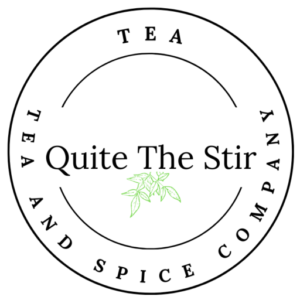
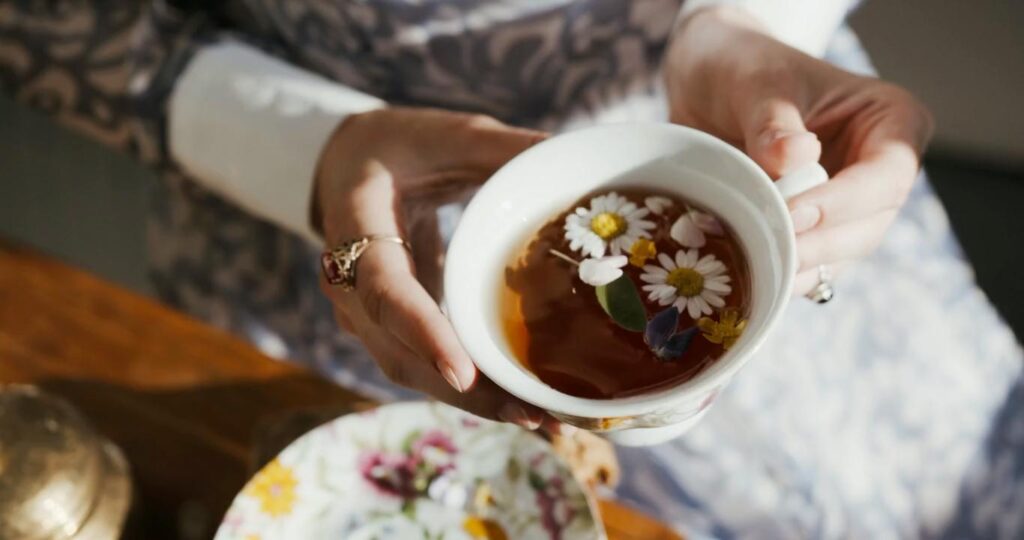
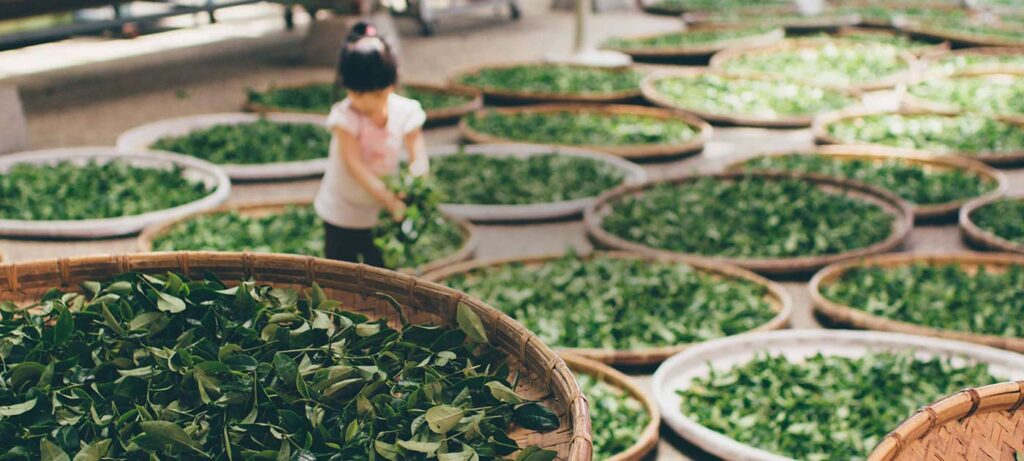
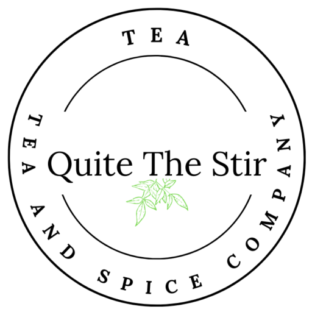
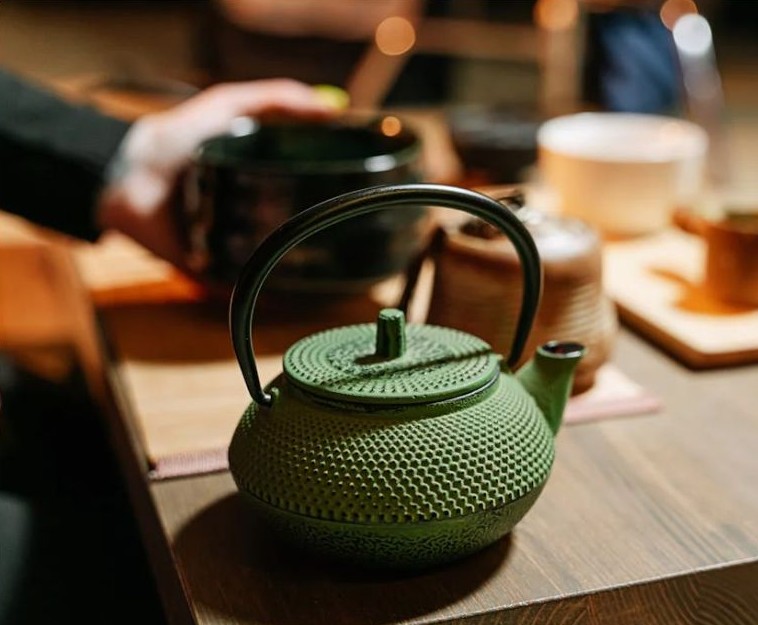
One Response